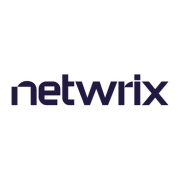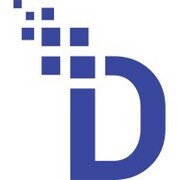
Best Sensitive Data Discovery Tools 2026
What are Sensitive Data Discovery Tools?Sensitive data discovery tools identify unknown sources of data within an organization, particularly sources of sensitive data, and classifies the risk associated with each source of data. These tools help organizations maintain data compliance and prevent damage from data breaches or loss, as well as enabling more efficient sensitive data storage. Sensitive data comes with its own classification metrics, based on what kind of demographic, health, and ...
We’ve collected videos, features, and capabilities below. Take me there.
All Products
Learn More about Sensitive Data Discovery Software
What are Sensitive Data Discovery Tools?
Sensitive data discovery tools identify unknown sources of data within an organization, particularly sources of sensitive data, and classifies the risk associated with each source of data. These tools help organizations maintain data compliance and prevent damage from data breaches or loss, as well as enabling more efficient sensitive data storage. Sensitive data comes with its own classification metrics, based on what kind of demographic, health, and other individual-level data is in question, including consumer data in some cases. This classification allows organizations to better understand and mitigate the risks associated with storing sensitive data.
Sensitive data discovery tools are particularly relevant for large enterprises and orgs that work with lots of sensitive data, such as insurance companies and others that work with their end-users/customer’s sensitive or proprietary data. Managing, and even identifying, sensitive data is especially challenging when there are so many structured and unstructured sources of data, including sensitive data. Sensitive data discovery tools address this concern for enterprises.
Sensitive Data Discovery vs. BI Data Discovery
Sensitive data discovery overlaps in naming with business intelligence-related data discovery processes. However, the functions and associated products are very distinct. Sensitive data discovery focuses on identifying and securing risk associated specifically with sources of sensitive data. In contrast, BI-related data discovery focuses on combining disparate sources of data for collective analysis. Both classes of tools prioritize identifying sources of data within an organization, but for vastly different purposes.
Sensitive Data Discovery Tools Features & Capabilities
Many tools have specialized features and niches, but there are a few core areas that all sensitive data discovery tools should include:
Identification of known and unknown data sources
Classification of data’s sensitivity, vulnerability, and general risk profile
Mapping, visualization, and/or reporting on data sources within organization
Sensitive Data Discovery Tools Comparison
When comparing different sensitive data discovery tools, consider these factors:
Remediation tools: Identifying sensitive data is only helpful if the organization knows what to do with that information. What suggestions or proactive actions can each product take to improve the organization’s sensitive data storage and security posture? How well does each tool integrate with other Risk, Governance & Compliance (GRC) tools the organization uses?
Classification Process: How customizable, automated, and generally robust is the tagging and classification structure for each product? Ideally, the vendor should be able to identify either a demo or a similar use case and deployment to your organization to demonstrate prior success. Also consider how automated the classification processes are.
Ease of Use: In general, how easy to use is each product? How intuitive are its visualization capabilities? Will it require ongoing IT support and maintenance to use, or are most of the processes and alerts automated?
Start a sensitive data discovery tool comparison























